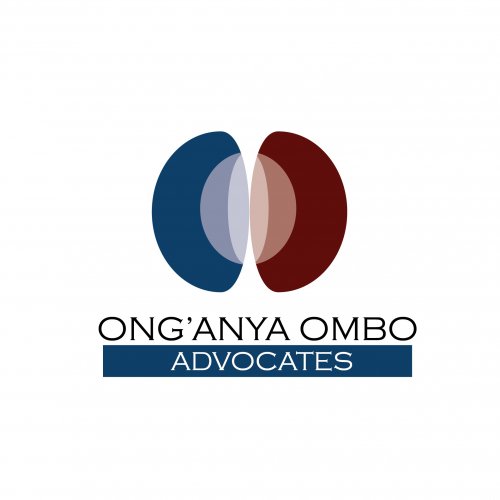Best Biotechnology Lawyers in Kenya
Share your needs with us, get contacted by law firms.
Free. Takes 2 min.
Or refine your search by selecting a city:
List of the best lawyers in Kenya
About Biotechnology Law in Kenya
Biotechnology in Kenya is a rapidly developing sector, playing a crucial role in enhancing agricultural productivity, healthcare innovation, and environmental sustainability. The Kenya National Biosafety Authority is the primary regulatory body responsible for overseeing biotechnology activities, ensuring safety and compliance with national and international standards. Given the potential and varied applications of biotechnology, the legal framework is designed to foster innovation while safeguarding human health and the environment.
Why You May Need a Lawyer
Individuals and businesses may require legal assistance in biotechnology for several reasons. This includes navigating regulatory compliance, intellectual property protection, contract negotiations, and resolving disputes. Investors and companies often need guidance on licensing agreements or joint ventures, while researchers may seek advice on patenting new biotechnological innovations. Additionally, regulatory compliance with biosafety laws is critical for startups and established businesses engaging in genetic modification or similar endeavors.
Local Laws Overview
The regulatory framework for biotechnology in Kenya is primarily governed by the Biosafety Act of 2009. This act provides a comprehensive legal foundation for biotechnology regulation, covering areas such as genetically modified organisms (GMOs), research and development, and import and export controls. The act ensures that biotechnological activities are conducted responsibly, with a focus on public safety and environmental protection. Other relevant laws include the Seed and Plant Varieties Act, which governs the approval and release of genetically modified seeds, and the Industrial Property Act, which addresses patenting issues.
Frequently Asked Questions
What is the main regulatory body for biotechnology in Kenya?
The principal regulatory body is the National Biosafety Authority, which oversees all activities related to the safe use and handling of GMOs.
Do I need a permit to conduct biotechnology research in Kenya?
Yes, you will need a permit from the National Biosafety Authority before conducting any research involving GMOs or other regulated biotechnological activities.
How are GMOs regulated in Kenya?
GMOs are regulated under the Biosafety Act of 2009, which includes provisions for safety assessments, labeling, and monitoring to ensure public and environmental safety.
Can I patent a biotechnological invention in Kenya?
Yes, biotechnological inventions can be patented in Kenya under the Industrial Property Act, provided they meet the criteria for patentability.
What are the penalties for non-compliance with biosafety regulations?
Penalties for non-compliance can include fines, imprisonment, and suspension of licenses or permits.
How can a lawyer help with biosafety compliance?
A lawyer can assist in navigating the regulatory landscape, ensuring that all necessary permits are obtained, and advising on best practices for compliance.
What should a contract for biotechnology collaboration include?
Contracts should include terms on intellectual property rights, confidentiality, project scope, milestones, and dispute resolution mechanisms.
How are disputes in the biotechnology sector resolved?
Disputes can be resolved through negotiation, mediation, arbitration, or litigation, depending on the circumstances and the parties involved. A lawyer can provide guidance on the most appropriate method.
Are there local incentives for biotechnology companies in Kenya?
Yes, the Kenyan government offers various incentives, including tax breaks and grants, to promote the growth of the biotechnology sector.
What are the ethical considerations in Kenyan biotechnology law?
Ethical considerations include ensuring that biotechnological advances do not harm human health or the environment, and that they respect social and cultural values.
Additional Resources
Some useful resources and bodies include the National Biosafety Authority, the Kenya Plant Health Inspectorate Service, the Kenya Industrial Property Institute, and the Kenya Agriculture and Livestock Research Organization. These entities provide valuable information and support for those involved in biotechnology.
Next Steps
If you need legal assistance in biotechnology, consider consulting with a lawyer who specializes in biosafety and intellectual property law. They can provide tailored advice based on your specific needs. You can also reach out to relevant regulatory bodies for guidance on compliance and permits. Participating in industry events and workshops can further enhance your understanding of the biotechnology legal landscape in Kenya.
Lawzana helps you find the best lawyers and law firms in Kenya through a curated and pre-screened list of qualified legal professionals. Our platform offers rankings and detailed profiles of attorneys and law firms, allowing you to compare based on practice areas, including Biotechnology, experience, and client feedback.
Each profile includes a description of the firm's areas of practice, client reviews, team members and partners, year of establishment, spoken languages, office locations, contact information, social media presence, and any published articles or resources. Most firms on our platform speak English and are experienced in both local and international legal matters.
Get a quote from top-rated law firms in Kenya — quickly, securely, and without unnecessary hassle.
Disclaimer:
The information provided on this page is for general informational purposes only and does not constitute legal advice. While we strive to ensure the accuracy and relevance of the content, legal information may change over time, and interpretations of the law can vary. You should always consult with a qualified legal professional for advice specific to your situation.
We disclaim all liability for actions taken or not taken based on the content of this page. If you believe any information is incorrect or outdated, please contact us, and we will review and update it where appropriate.
Browse biotechnology law firms by city in Kenya
Refine your search by selecting a city.















